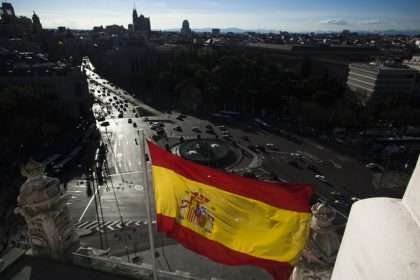Changes at the Top Could Cause a New Direction for Poker in Spain
The sudden announcement that DGOJ Director General Enrique Alejo had resigned to take up a job in television has prompted concerns about the future direction of poker in Spain.
Spanish site Poker10 points to three areas of specific interest for poker players: clarification of taxation on winnings; shared liquidity pools; and compliance with EU regulations.
The Spanish regulatory model restricts players in Spain to sites regulated by DGOJ, denying them the chance to play on sites regulated in other EU member states. A number of complaints are pending before the EU Commission, but there is little hope of action that may change the situation in the immediate future.
Enrique Alejo was seen as a champion of both EU compliance and shared liquidity pools, where agreements could be established with other nationally regulated markets so that, for example, players at PokerStars.es would play at the same tables as players at PokerStars.it.
Alejo was pushing for such pools to be introduced before the end of this year, Italy being the most likely country to make the first step. Spanish and Italian regulations could most easily be brought into conformance; France would require changes in primary law before it could agree to the move.
The name of the new director is not yet known, but his or her attitude to these subjects will have a significant impact on the speed with which the regulatory framework will mature.
It’s tough to make profits as a gaming operator in Spain. The gaming tax and low levels of liquidity make it a practical market for only the larger operators. Many are carrying on in the hope that regulatory relaxation will make the market larger and more viable.
The main factor working in favor of a more liberal regime is the financial crisis facing Spain. Even after a quarter of a million of them have left for other countries, youth unemployment is at an all-time high of over 57%. The banks have had a €100 billion bailout, but are still unable to increase lending, and the government has already started to beg for more time to reduce its deficit to meet EU rules.
In this situation, potential tax revenues from gambling become very attractive, and lobbyists complaining of social harm become marginalized Following its bailout, Cyprus has already swept away social opposition to announce authorization for new casinos and Greece is trying to extend the monopoly gaming position of OPAP.
The Greek state owns a significant shareholding in monopoly gaming provider OPAP, and it has been forced by the bailout troika to put it up for sale. Extending its monopoly is a way of getting higher offers for the company.
The new power at the helm of DGOJ will probably be given clear direction to get revenues up. The concessions Madrid has handed out to billionaire casino magnate Sheldon Adelson to induce him to build the EuroVegas mega complex in the region are a good indication of the desperation Spanish politicians are feeling. They will go to phenomenal lengths in order to win jobs, investment and new tax revenues.
The DGOJ report covering the last two quarters was telling. It showed strong growth, but a flattening level of player participation. 25% gross gaming yield (GGY) taxes are high, and have a particular impact on poker.
If the Spanish market follows the French and Italian story, the initial love affair with cash games will soon wear off, and in large numbers, players will switch to tournaments. This has an enormous impact on tax revenues as cash games generate much more GGY. French regulator ARJEL’s latest report showed a fall in total tax receipts, driven entirely by a €222 million drop in operator revenues from ring games as players moved over to tournaments.
Rake at Spanish sites is higher to offset the impact of gaming taxes. This has a disproportionate effect on cash game players, turning many into overall losers, and slashing the income of regulars. Tournament players feel much lower effects as, for example, raising the rake on a €100 buy-in event from €9 to €10 has a much lower impact on players’ ROI (Return on Investment).
DGOJ will be well aware of the French and Italian experience and if the new head is given the mandate to maximize tax revenues, he or she may well take the organization in a direction that benefits poker players. This is one area where the infamous Laffer curve does apply: a lower tax on poker would raise more in tax revenues.
Opening the market to more competition by complying with EU treaties, or doing a deal to create shared player pools with Italy would get more money into the Spanish treasury. Clarifying laws on gambling winnings would give more players the confidence to declare them.
A new figure at the top of DGOJ will inevitably want to make his mark. Liberalizing the regulatory structure, complying with EU law, lobbying for lower taxes on poker would be one way to do it. It’s not the only way, but it is the right way, and with the spur of the fiscal crisis, it’s the best way for Spain.




















COMMENTS